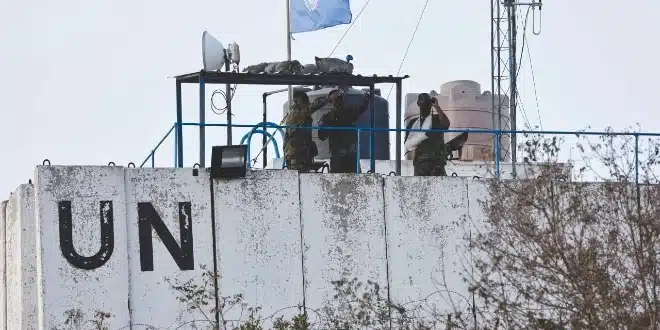Washington is actively considering ending its financial and logistical backing of the United Nations Interim Force in Lebanon (UNIFIL), a move that could reshape international peacekeeping dynamics in the region. American sources confirmed the discussions following initial reports by Israeli media, indicating that the Biden administration is reassessing the mission’s cost-effectiveness and operational relevance.
UNIFIL’s mandate, which is renewed annually by a United Nations Security Council resolution, is up for renewal this August. If the U.S. concludes that its expectations for operational reforms have not been met, it could opt to veto the resolution, effectively blocking the continuation of the mission in its current form.
Security Dynamics and Diplomatic Calculations
The prospect of U.S. disengagement has already received tacit support from Israeli officials. According to Israeli reports, the Israeli government views the Lebanese Armed Forces as having played an increasingly significant role in maintaining border stability since a ceasefire was implemented in November. This assessment aligns with a growing perception within Israeli defense circles that UNIFIL’s presence may be redundant given the strengthened role of the Lebanese military in containing Hezbollah activities.
Israel has also remained engaged militarily in the region, reportedly targeting Hezbollah infrastructure and personnel in response to violations of the ceasefire. The Israeli military claims to have eliminated over 180 Hezbollah operatives since the truce took effect.
UNIFIL was first deployed in 1978 to monitor Israel’s withdrawal following its initial incursion into southern Lebanon. The mission’s scope expanded significantly after the 2006 conflict between Israel and Hezbollah, when Resolution 1701 was adopted by the UN Security Council. This resolution called for a cessation of hostilities, the disarmament of Hezbollah, and the deployment of Lebanese government forces in the south for the first time in decades.
Progress on the Ground and Broader Implications
In recent remarks, Lebanese Prime Minister Nawaf Salam stated that his administration had achieved approximately 80 percent of its objectives in the effort to disarm Hezbollah and other militias in the south. The Lebanese Army’s continued presence in the region, particularly south of the Litani River—a zone from which Hezbollah fighters are required to withdraw under Resolution 1701—has been central to this progress.
Despite these advancements, tensions persist. UNIFIL’s mission, often criticized for its limited capacity to prevent Hezbollah’s rearmament, has come under renewed scrutiny as Washington evaluates its future involvement. U.S. officials reportedly remain undecided, but are emphasizing the need for structural reforms in UNIFIL’s operational framework if American backing is to continue.
If the U.S. ultimately withdraws its support, the implications could be significant—not only for regional security but also for the broader credibility and financing of UN peacekeeping operations. Washington remains one of the largest contributors to UN peacekeeping budgets globally, and a shift in its stance on UNIFIL could set a precedent for future engagements elsewhere.


